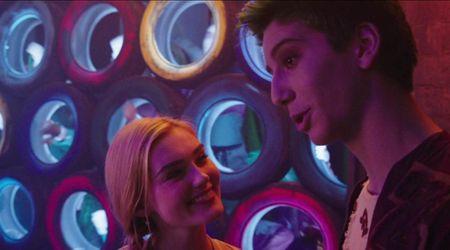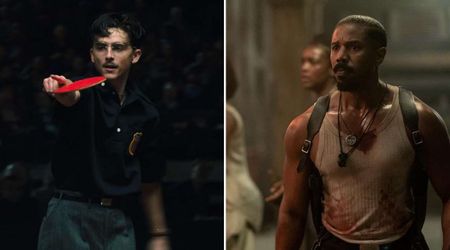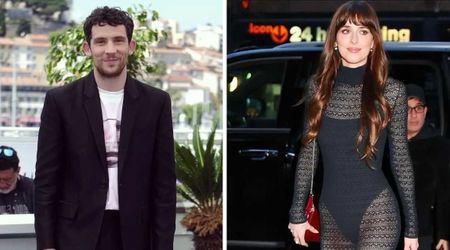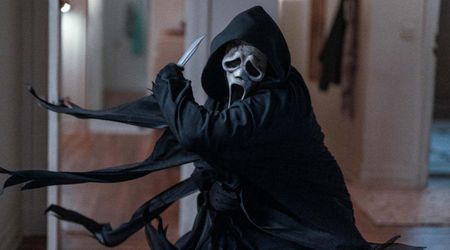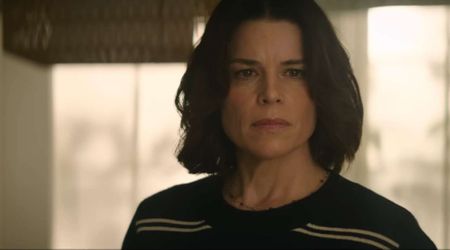How Netflix's 'The Selection' director Haifaa al-Mansour's debut film 'Wadjda' broke barriers and changed perceptions

It has been eight years since Haifaa Al-Mansour did the unthinkable by directing 'Wadjda' in Saudi Arabia, which, at the time, didn't allow women to drive unless accompanied by a male relative. Since then, women have started driving cars independently in the country ruled by strict Sharia rules. But Al-Mansour's record still stands. She is still the only Saudi Arabian female director with a feature film credit to her name.
While she has come a long way since, scoring lucrative deals with Netflix, including the latest 'The Selection', her first film remains an undying testimony to her spirit and creativity. Her father, poet Abdul Rahman Mansour, had introduced her to films on video, there were no movie theaters in Saudi Arabia between 1983 and 2018. As a teenager, she watched Jackie Chan and Bollywood movies and was allowed to listen to music — actions that got her ostracized at school when she told her classmates about it.
But it sparked a love for the movies that never died. Al-Mansour went on to study Film Studies at the University of Sydney, Australia, before she returned to her country to make films, starting slow with shorts and documentaries.
When she made 'Wadjda', basing the lead character's quest to have a bicycle on her own and her niece's experience, it was the first feature film ever to be shot entirely in Saudi Arabia. Add to that, she was a female director — something that was unheard of in the neighborhoods she shot in. People protested and tried to interrupt the filming. Speaking about the experience to 'The Guardian', Al-Mansour revealed: “One of them told me they had a coffin ready for me.”
At the time, she couldn't turn to the police for help because she was an unknown and she had no filming permits because they didn't exist. With no functioning film industry, there was also no casting agents or location scouts that all directors rely on. Everything was on her. Speaking about the experience, she said: "When I made Wadjda there was more anxiety. I grew up in a world where my voice shouldn’t be heard and I should be covered up."
She couldn't be seen openly ordering the male actors in her film as the director. In fact, even being seen around men who weren't her relatives was a problem. So she became a director-in-hiding, staying in the back of a van parked on the sets in Riyadh. She communicated with her actors via walkie-talkie. “But I’m sure you could hear my voice all over Riyadh. ‘Do that!’ ‘Pull the camera back!", she said in an interview about the challenges of directing 'Wadjda', calling it frustrating to be trapped in the confined space but ultimately rewarding.
Her confidence to direct like that was also based on lots of running the scenes with actors indoors before the actual shoot. "It made me realize the need to rehearse and to develop an understanding for each scene before we shot it," she said.
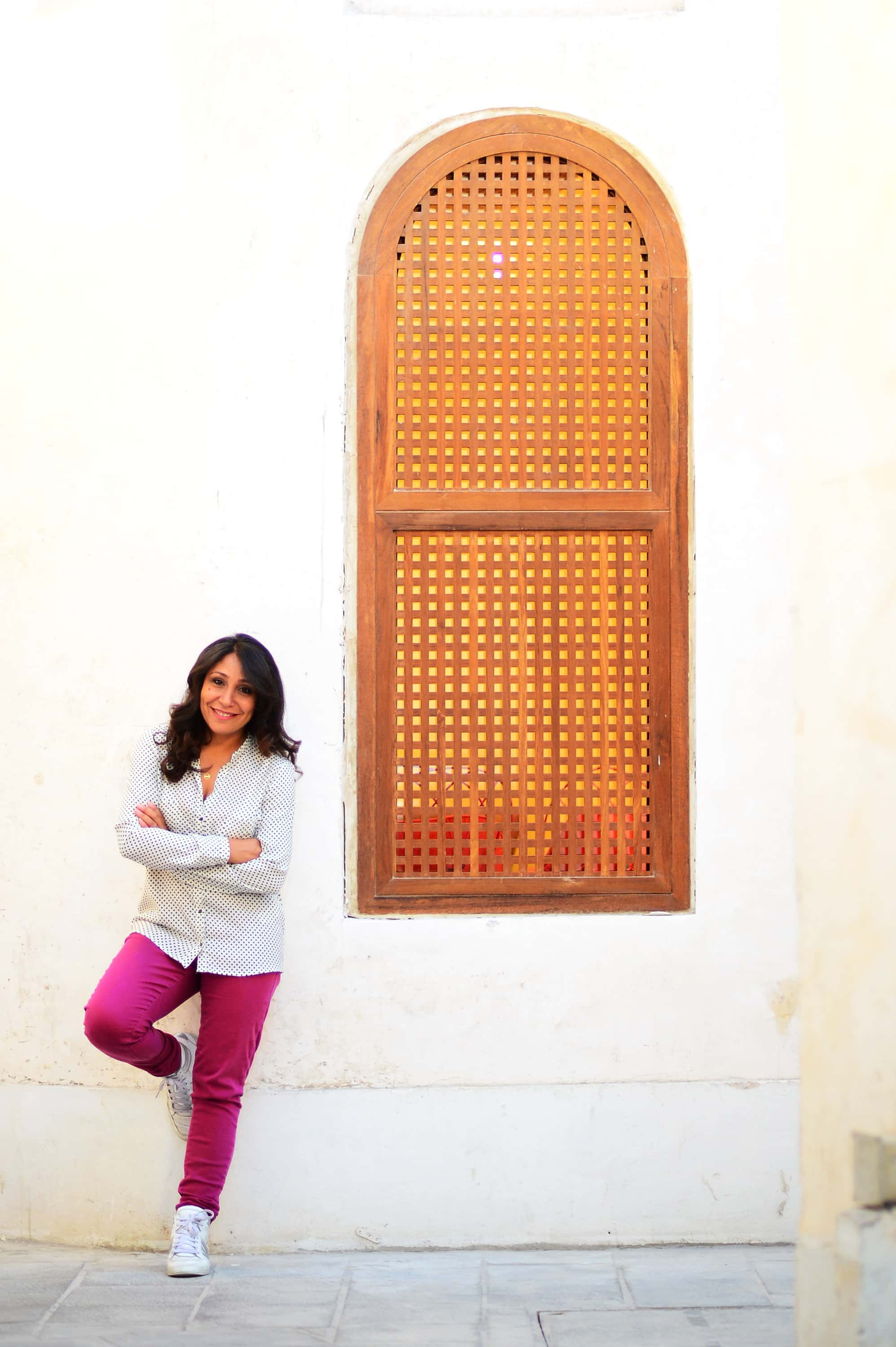
However, even while pushing the envelope, Al-Mansour remained cautious. While she could have stepped out and worked more publicly on the film to make a statement, this was not her aim. "I wasn't trying to clash with people; I was trying to make a film. And I know people, if they see me, they will get offended, or people will come question [us] and try to stop us. I don't want to provoke people. I'm making a film in Saudi Arabia — I'm a woman — about a young girl who wants a bicycle. That's enough. I don't have to push it."
At the same time, she was determined to shoot in Saudi Arabia rather than less restrictive countries like Jordan or Qatar.
Explaining her decision, she said: "I think it is very important to open up Saudi and have new imagery coming from the kingdom. Nobody knows [what] it is like to be in Saudi, and for me it is important to create that ownership — even for people in Saudi, when they see the neighborhoods and all that. And one day we did some cultural screening in Saudi, and we invited a lot of Saudis and young kids. And one of them came to me, and he was really emotional and told me, 'I understand, I feel how Americans feel now when they see an American movie.' And it was amazing. It made me almost like, 'Ah, I'm gonna cry.'"
Casting for the film was also an onerous task, especially the lead role of a little girl dreaming of owning her own bicycle that ultimately went to Waad Mohammed. "It was hard. And every time we find a girl who's a little bit like, maybe she has the spirit... her parents will call us and say, 'No, she has school.' And they are very reluctant to be in a film like this. But [Mohammed] came in really carefree, with jeans and everything. And I wanted her to sing because there's the singing and recitation [in the film]. And she sang beautifully — [to] Justin Bieber, with perfect English." But even after Al-Mansour assembled her cast, it took her five years to make 'Wadjda'.
She spent most of the time trying to find financial backing and trying to get at least oral permissions to film on the streets of Riyadh. It helped that she received backing from Rotana, the film production company of Prince Alwaleed bin Talal. Her perseverance finally paid off when her own countrymen nominated 'Wadjda' as Saudi Arabia's first-ever submission to the Oscars in the 'Best Foreign Language Film' category at the 86th Academy Awards.
Today Saudi Arabia has lifted its ban on cinema. 'Wadjda' paved a way for a new era for Saudi filmmakers. Men who for years had faced harassment from Saudi authorities for pursuing a profession that was considered "haram", or forbidden, now find it easier to make films in the country and Saudi Arabia has its own Film Council now. And it is all thanks to a girl who dared to dream about making a film.



